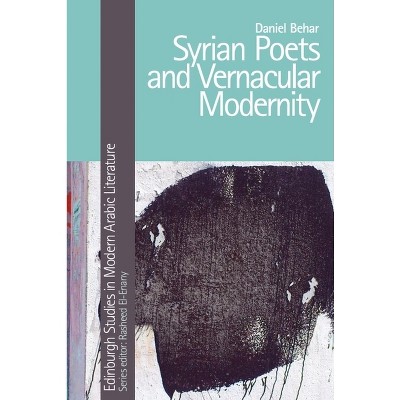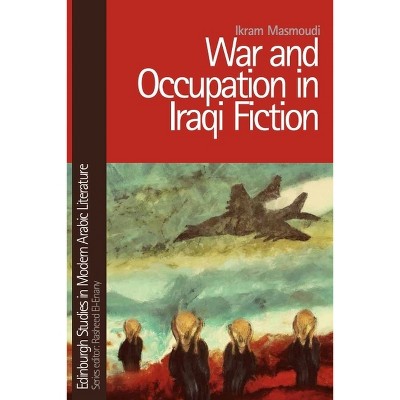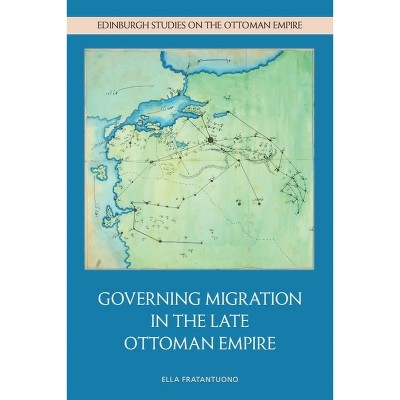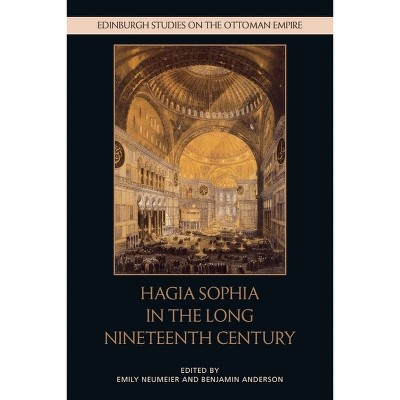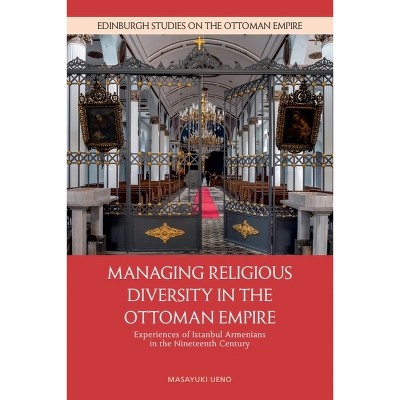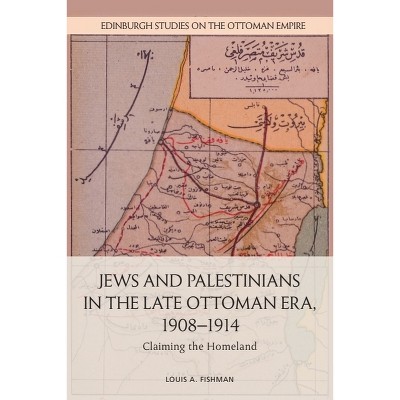Sponsored

The Ottoman Canon and the Construction of Arabic and Turkish Literatures - (Edinburgh Studies on the Ottoman Empire) by C Ceyhun Arslan (Paperback)
Pre-order
Sponsored
About this item
Highlights
- The Ottoman Canon and the Construction of Arabic and Turkish Literatures fleshes out the Ottoman canon's multilingual character to call for a literary history that can reassess and even move beyond categories that many critics take for granted, such as 'classical Arabic literature' and 'Ottoman literature'.
- Author(s): C Ceyhun Arslan
- 248 Pages
- Literary Criticism, Comparative Literature
- Series Name: Edinburgh Studies on the Ottoman Empire
Description
About the Book
Studies the intertwined manner in which Arabic and Turkish literatures took shape as national traditions.Book Synopsis
The Ottoman Canon and the Construction of Arabic and Turkish Literatures fleshes out the Ottoman canon's multilingual character to call for a literary history that can reassess and even move beyond categories that many critics take for granted, such as 'classical Arabic literature' and 'Ottoman literature'. It gives a historically contextualised close reading of works from authors who have been studied as pionneers of Arabic and Turkish literatures, such as Ziya Pasha, Jurjī Zaydān, Maʿrūf al-Ruṣāfī and Ahmet Hamdi Tanpınar.
The book analyses how these authors prepared the arguments and concepts that shape how we study Arabic and Turkish literatures today as they reassessed the relationship among the Ottoman canon's linguistic traditions. Furthermore, it examines the Ottoman reception of pre-Ottoman poets, such as Kaʿb ibn Zuhayr, hence opening up new research avenues for Arabic literature, Ottoman studies and comparative literature.
Review Quotes
The Ottoman Canon by C. Ceyhun Arslan is an important contribution that fits into the panorama of studies on Arabic, Turkish and Ottoman literature by proposing an original perspective, capable of questioning given conceptions and generating new reflections.--Arthur Monaco "Arablit Magazine"
In this eye-opening book, C. Ceyhun Arslan shows us the transformations of concepts and analytical paradigms in Middle Eastern literatures' journey from multilingual Ottoman canon in the 19th century to monolingual Arabic, Persian and Turkish national literatures in the 20th century and translated world literature in the 21st century.
--Wen-chin Ouyang, SOAS, University of LondonWith an innovative focus on the late Ottoman and post-Ottoman Middle East, The Ottoman Canon traces a theoretically informed analysis of the multilingual Ottoman literary "reservoir" as it informs mutually formative aspects of Turkish and Arabic national literatures. A well-researched study of multivalent cultural translation that will be of certain interest to specialists across multiple fields.
--Erdağ Göknar, Duke UniversityArslan's use of secondary material is thorough and enlightening for specialists, which both makes The Ottoman Canon an indispensable reference for scholars in Middle Eastern literatures and shows the way toward a Middle Eastern comparative literature. Arslan's study also highlights his impressive knowledge of late Ottoman fiction, literary historical writing, and journalism.--Levi Thompson, University of Texas at Austin "International Journal of Middle East Studies"
Shipping details
Return details
Trending Book Pre-Orders






